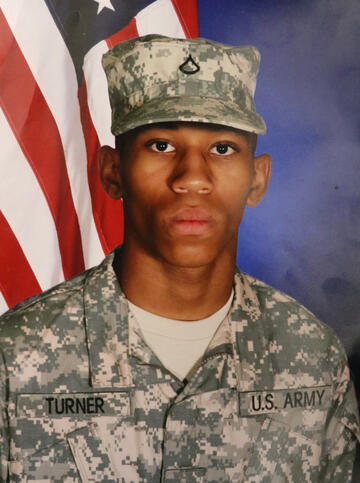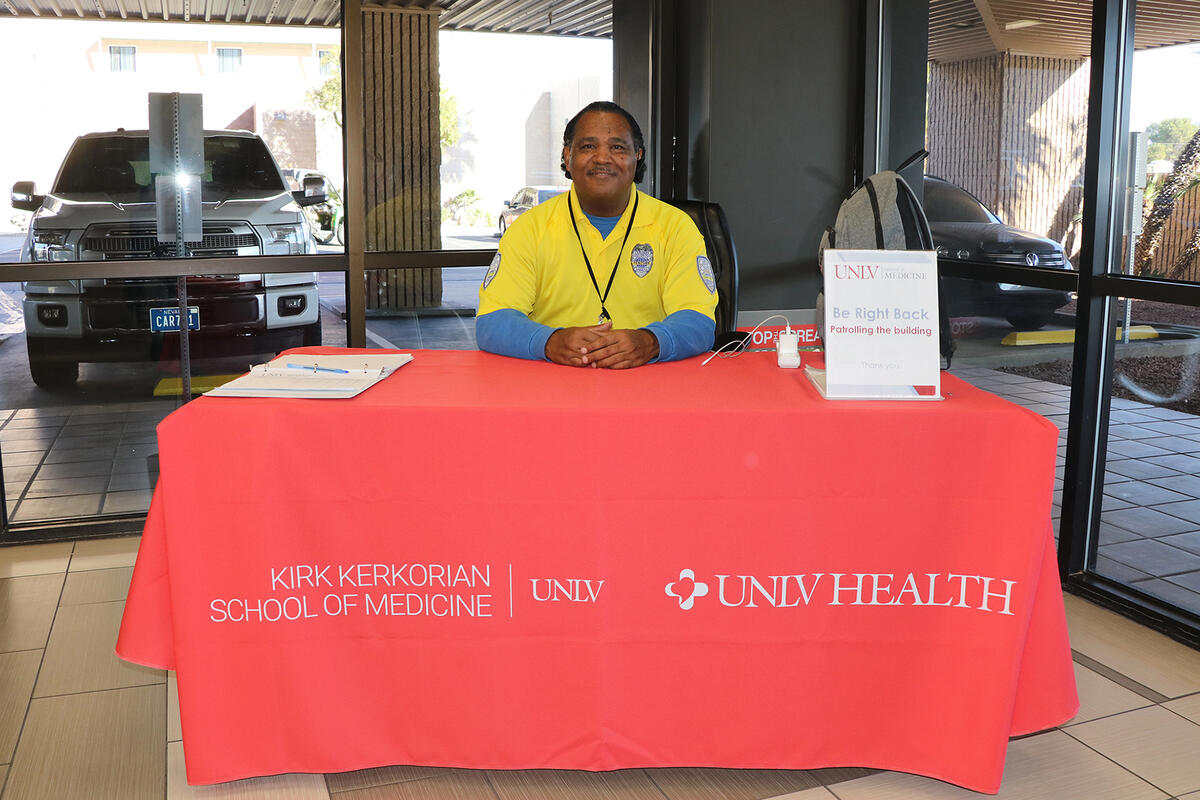In the weeks before Russia launched a full-scale invasion to Ukraine, AnShawn Turner, who works for a firm providing security for the Kirk Kerkorian School of Medicine at UNLV, received a phone call with information he didn’t want to hear.

The call was from his son, Sgt. AnShawn Turner Jr., a paratrooper with the elite 82nd Airborne Division that is headquartered at Fort Bragg, North Carolina. Junior, as his father calls him, was being deployed with his unit to Eastern Europe.
It was, the elder Turner recalls, a hurried conversation, one short on specifics because of security concerns. He remembers that Junior said he loved him, told him not to worry because he wouldn’t have to fight, that he was going to “take care of business” and then come home.
In the days that followed, Turner learned from news stories that thousands of troops from the 82nd Airborne Division were working with Polish forces to set up processing centers for people expected to flee Ukraine if Russia launched a full-scale invasion. Though he saw TV news stories showing Russian troops surrounding Ukraine for an apparent major assault, Turner prayed sanity would prevail, that diplomacy would win out.
“When I saw on my phone, stories about Putin launching troops into Ukraine and bombs going off, I started wondering if my son was going to have to engage,” Turner says as he stands in the lobby of the 2040 Building on West Charleston Blvd. that houses a medical school library and administrative offices. “They say our troops are not going to be in it, but in a war, things have a way of spiraling out of control. I’ll feel a lot better when he’s out of there.”
President Joe Biden has repeatedly said American troops will not fight in Ukraine. Troops from the 82nd Airborne Division are now helping the thousands of evacuees pouring into Poland.
But the more Russian President Vladimir Putin talks – he has now strongly implied that he would use nuclear weapons against any country that interferes with his military campaign in Ukraine – the more concerned Turner becomes.
“This is all heavy on my heart,” he says. “I'm looking at newsbreaks on my phone and I’m wondering about my son…I know my son signed up for the military, but this is just crazy, Putin trying to satisfy his ego, going to war over nothing…It isn’t easy to stop thinking about all this, makes it hard to sleep. I wish I could hear more from Junior but I know he’s busy.”
Even though Turner admits the situation in Ukraine has him on edge, he still greets administrators and visitors at the medical school with a smile, quickly helps employees load their cars with material going to the Shadow Lane campus, and cheerfully escorts students who use the library at night to their cars.
“They call me Pops,” he says with a grin. “I’ve got a lot of children. They’re nice kids.”
Turner says that in his position he feels like part of the medical school family. “I get to know people – they’re people trying to bring better medical care to Las Vegas. That’s important.”
Like so many parents who’ve had children in the military, Turner can’t help but think about the American soldiers who don’t come back alive from conflicts that arise around the globe.
“You don’t want to think about it, but you do. It hurts my heart.”
As a parent, Turner says you also find yourself going down memory lane, thinking about the good times. He remembers: coaching his son’s youth basketball team; helping him learn to ride a bike; and how he never seemed able to make enough barbecue for his boy.
He recalls that his son, who was not happy with his job prospects after graduating from Legacy High School in North Las Vegas, enlisted in the Army 10 years ago. “I wasn’t excited about it because of the danger, but I was proud of him trying to better his life.” Prior to his recent deployment to eastern Europe, Turner Jr. had also been stationed in Korea and Egypt as well as at several duty stations in the U.S. He now has four sons, just like his dad, with his wife Alyssa, who’s in the National Guard in North Carolina.
Soon after his son got into the service, Turner says Junior found himself doing push-ups until he felt his arms would give out for good.
“Junior said when the drill sergeant started yelling at him like the drill sergeant did in that movie ‘Full Metal Jacket,’ he couldn’t help but laugh. Then the drill sergeant made him do push-ups. The more the drill sergeant yelled, the more Junior laughed and had to do push-ups. Finally, Junior stopped laughing.”
Turner credits his son’s stepmother, Janice Chalmers, with helping in his positive upbringing. “She kept him in the church,” he says. Chalmers is proud of the young man who sang in the choir at the Ebenezer Church of God in Christ. “He’s so talented. He made a video for a school that he hopes will help him get work in music production.”
“I know God will take care of him,” Chalmers says.
It is late afternoon and many medical school staffers are leaving the 2040 Building for home. Kristen Steffen, senior director in the office of faculty affairs, stops to chat with Turner in the lobby. She expects her oldest son, a Marine, will be sent to Europe. As she starts to walk out the door, she calls back to Turner.
“I’m praying for your son,” she says.



